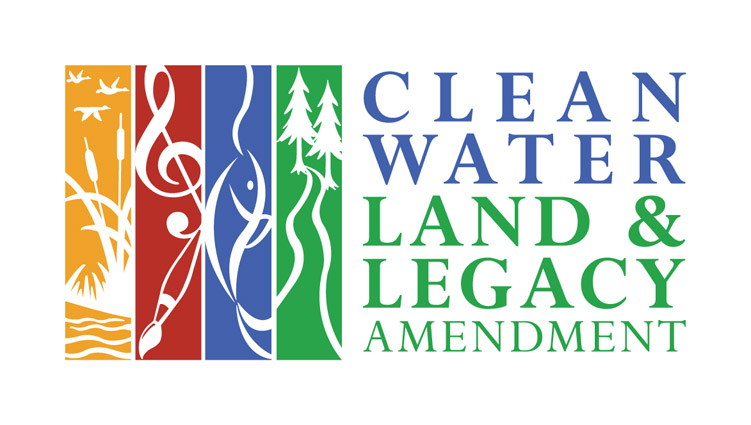Due to COVID-19 precautions, the Ecological History series has been postponed. If the public health situation improves, the lectures may be rescheduled for May and June.
Winona State University and the Winona County Historical Society have announced a joint lecture series on ecological history, with various events taking place between March 25 and April 21, 2020. All lectures are free and open to the public, with refreshments provided.
The WCHS and WSU were awarded a Heritage Partnership grant to digitize, preserve and develop unique resources in order to expand educational opportunities for our community to learn about the unique ecologic history of the Driftless area, specifically in Minnesota. Support for this lecture series was included in the grant funding.
Lectures scheduled as part of the series include:
Minnesota’s Driftless Area: a Biodiversity Hotspot
Hannah Texler Plant Survey Supervisor, Minnesota Department of Natural Resources
TBD | Winona County Historical Society, Wanek Hall
In this talk, Ms. Texler will share results of the Minnesota DNR 30-year survey of the state’s biologically diverse Driftless Area, which has the highest number of rare plant and animal species and the highest number of animal species of conservation concern in the state, as well as a diverse assemblage of native plant communities. Ms. Texler will summarize the survey’s findings with maps and photos and will talk about the prognosis for the area’s biodiversity in the future. She will also provide a more detailed look at the survey’s results for the Winona area.
Seeds for Seven Generations
Diane Wilson Dakota writer and Mdewakanton descendent, enrolled on the Rosebud Reservation
TBD | Winona State University, Stark Hall, room 103
Diane Wilson’s presentation will focus on our indigenous seeds, especially from a Dakota perspective, and on our evolving relationship with corn, one of our most important seed relatives, from indigenous gardens to contemporary farming. She will also discuss exciting work being done today by Native organizations to reclaim our indigenous seeds as food for our communities. The topics in this presentation come from Diane Wilson’s essay, “Seeds for Seven Generations,” that was published in A Good Time for the Truth anthology (Minnesota Historical Society Press, 2016).
A View from the Minnesota Woods
Dr. Eli Sagor Extension Specialist, Cloquet Forestry Center, University of Minnesota
TBD | Winona County Historical Society, Wanek Hall
Dr. Sagor will discuss continual changes to wildlife habitat as driven by little green bugs, warming winters, changing markets, and of course…. humans. He will describe how emerging research is helping people to better understand shared, collective history and how human life has shaped forests, which have, in turn, have shaped culture and history. Steps will be offered on how to ensure the continued health, productivity, and beauty of forests of the Driftless and beyond.
Oak Savanna and Woodland: Using the Science of Disturbance Ecology and Silviculture to Help Restore Unique Driftless Area Ecosystems
Gregory Edge Forest Ecologist/Silviculturist with the Wisconsin Department of Natural Resources
TBD | Winona State University, Stark Hall, room 103
Mr. Edge will invite his audience to consider the Driftless Area’s forested hillsides, farmland, and meandering river valleys, once a vast mixture of prairie and park-like oak woodlands. Many of these unique ecosystems were shaped and maintained by fire – a disturbance that was largely stopped in the early 1900s. These changes to the Driftless forests will be discussed, as well as ways that the ecologist, foresters, and landowners can work together to restore unique and important oak ecosystems.
Learning from the Indigenous Roots of Sustainable Forestry in the USA: Promoting Sustainability, Community Healing, and Partnerships
Dr. Michael Dockry Citizen Potawatomi Nation; Assistant Professor, Department of Forest Resources, University of Minnesota
TBD | Winona State University, Science Laboratory Center (SLC), room 120
Co-sponsored by the All-University Arboretum and Land Stewardship Committee as part of the 8th Annual Arbor Day celebration, offering a free tree giveaway and WSU’s “Tree-Campus USA” recognition.
Dr. Dockry will present reflections from his decades-long work with Indigenous communities with goals to support Winona State’s efforts to build partnerships with Indigenous people and to enhance ecological and social restoration to meet 21st-century challenges. His talk will discuss how the Indigenous roots of sustainable forestry in the USA began with the Menominee Nation in Wisconsin and how that experience can inform contemporary sustainable forestry, ecological restoration, and community healing. Indigenous people believe that humanity’s common future depends upon incorporating Native wisdom and perspectives into global social, economic, and ecological decisions.
These events are made possible in part by the people of Minnesota through a grant funded by an appropriation to the Minnesota Historical Society form the Minnesota Arts and Cultural Heritage Fund.
For more information on this event series, visit the WSU Krueger Library’s Facebook page or Winona County Historical Society’s website at winonahistory.org/to-do.

